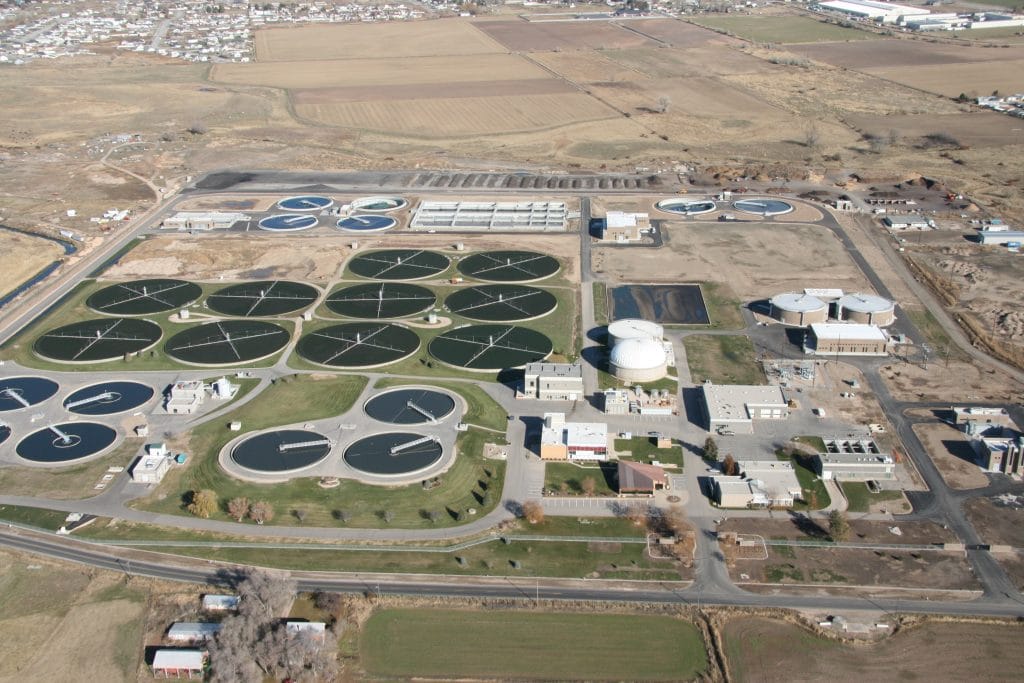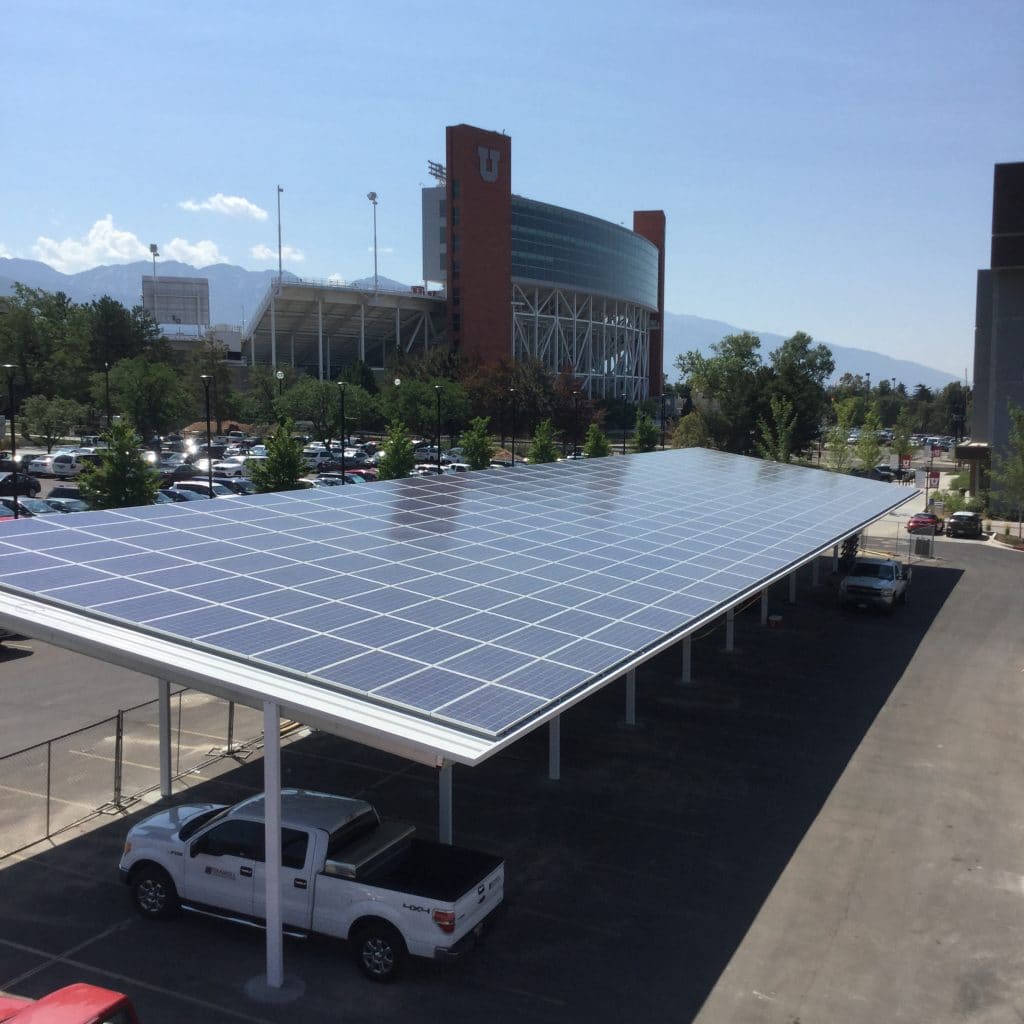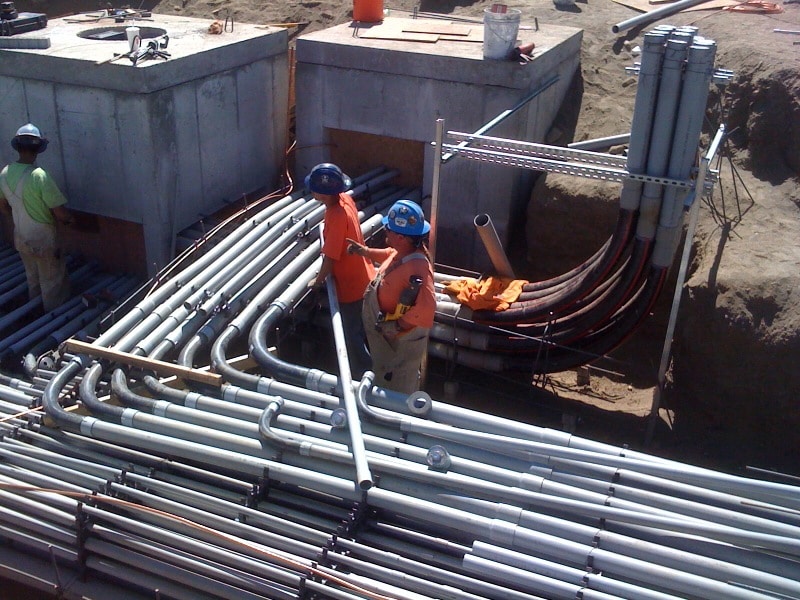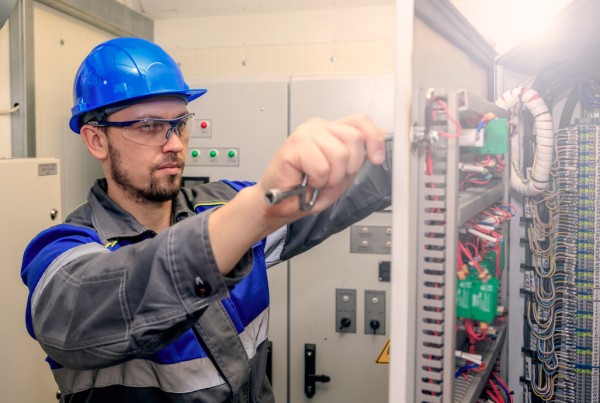When temperatures in Utah hovered in the three digits for weeks on end this past summer, Skyline Electric Company brought ice machines to its work sites so crews would have access to cold water and remember to stay hydrated.
That’s the kind of “little thing” Skyline Electric says it does to keep its crews safe, and it’s one of the reasons Skyline Electric recently reached 500,000 man-hours without a lost-time incident.

Shining a light on safety
Reaching that goal took Skyline Electric—a full-service electrical contractor headquartered in West Valley City, Utah—two years and four months, but President Zane Huffman says it’s just a start. The company’s crews are growing, and it won’t be long before it hits the next benchmark: 1 million man hours without a lost time incident.
Of course, this makes sense from a business perspective, not just from the standpoint of ethicality. As an employer, Skyline Electric wants healthy, uninjured employees who can return to work each day, or as Huffman says, “go home just the way you came, just maybe a little more tired.”
But it’s personal, too.
“I truly believe that, and it’s not just something I’m trying to preach to them,” Huffman says. “I have firsthand experience of a loss of a family member due to an accident at work and I don’t want to see any of their families go through that.”
“ Of course, this makes sense from a business perspective, not just from the standpoint of ethicality. ”
Skyline Electric has a safety manager who visits sites regularly, but Huffman pushes the idea that, really, each employee is a safety manager.
“I can’t have one guy keep 120 plus people safe,” he says. “I have to have 120 people keeping 120 safe.”
Skyline Electric tries to create a safety culture where all employees, even the new ones, feel comfortable reporting unsafe behavior, whether it’s the behavior of a coworker or another contractor, or even a project owner. Skyline Electric isn’t looking to get anyone in trouble but wants to stop unsafe practices.
It doesn’t matter how long it takes to complete a job safely, Huffman says; sacrificing safety for speed isn’t an option.
That’s the message employees hear on day one and each day afterwards. Then, as electricians climb the ranks to foreman and project manager, they continue to promote those values which have been instilled early and often.
Sometimes, Huffman says, the message that works best especially with fearless workers is to be selfless.
“If they don’t go home, they’re not the ones suffering, it’s the family that suffers,” he says. “Don’t be selfish. Do what you’ve gotta do at the job site to make sure you go home, because if you can’t go to work, you don’t get paid, and they suffer.”

Capacity for complexity
While commendable, a strong safety record isn’t all Skyline Electric has to be proud of.
Nearly 60 years old, Skyline Electric was founded in 1959, and in recent years it has added capacity, becoming a full-service electrical contractor and one-stop shop. With “multiple legs,” the company can now handle large and specialty projects, including heavy industrial and commercial work, small projects and distribution or transmission line work. It has a service and maintenance division and a motor shop that rewinds electric motors up to 600 horsepower. In addition, it’s taking on more low-voltage and solar projects.
At the moment, it’s part of the massive workforce making the $3-billion Salt Lake City International Airport renovations possible. There, Skyline Electric is working on the central utility plant, parking garage, roadways and airfield, and as the project unfolds over the next several years, Skyline Electric hopes to contribute even more.
For projects like those at the airport, Skyline Electric embraces the latest technology, including BIM 3D modeling and Trimble, which helps coordinate design and construction through GPS. And to monitor large, several-acre solar fields, Skyline Electric invested in a drone equipped with an infrared camera. What would have taken two months to survey now takes two days.
“We see the direction of the future of electrical contracting, and we’re really trying to embrace it,” Huffman says.
Raising the bar
With projects like that, and the large water and wastewater treatment plants which Skyline Electric is known for, it is well on its way toward achieving another goal: becoming the preferred electrical contractor for the Intermountain Region, located between the front ranges of the Rocky Mountains to the east and the Cascade Range and Sierra Nevada to the west.
When general contractors take comparison photos of Skyline’s finished work and that of other electrical contractors, “Ours looks perfectly pristine and really good and the other looked like a sloppy mess,” Huffman says.
Skyline Electric recently completed work at a theater—installing cable trays and the like. Afterward, the client commented that he’d done at least 30 similar projects and Skyline Electric’s work was one of the cleanest and best he’d seen.
“It’s important,” Huffman says. “Our guys want to be proud of what they put out there.”
Employer of choice
There seems to be no shortage of work in Utah. In fact, in 2016, the state’s construction industry saw 6.8 percent job growth, according to the University of Utah’s 2017 Economic Report to the Governor. The value of commercial construction alone reached a record $2.5 billion.
But as work picks up, finding enough employees is becoming more of a challenge.
So, Huffman says, “being the preferred [contractor], we’re not just talking about clients, either. We’re talking about employees, too.”
Skyline Electric is a member of the National Electrical Contractors Association (NECA), so its labor pool is a bit of a captive audience. Still, it wants to be the preferred employer from the union hall, too.
“We want people who want to be with us,” Huffman says. “Our slogan for our people is ‘Take care of Skyline and Skyline will take care of you,’ and we do.”




